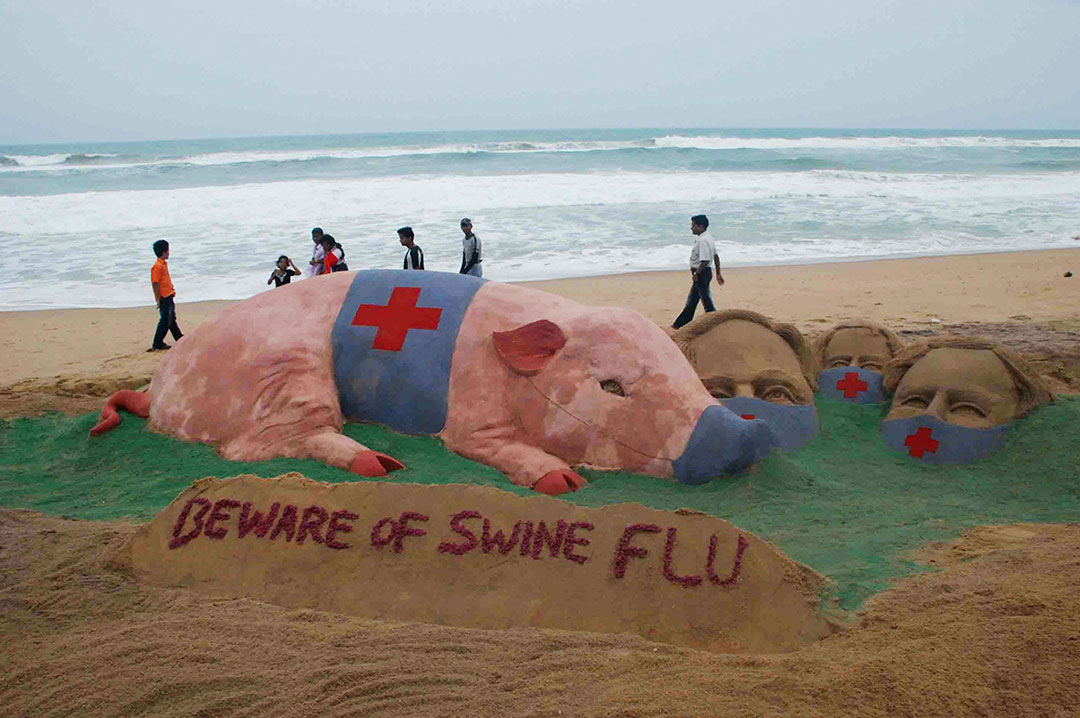"Swine flu" was the popular name for the virus, which was responsible for the global flu outbreak (called pandemic) from 2009 to 2010. It's seasonal flu and is now included in the annual flu vaccine. The scientific name for swine flu is A/ H1N1pdm09. It's often shortened to "H1N1". We are all well aware of this notorious, rapidly mutating virus that infects humans and is found in pigs.
The morbidity and mortality of severe infection can be prevented by administering the Swine flu vaccine. Unlike COVID-19; there are specific therapies like Oseltamivir are available to counter the severe conditions in OPD and admitted patients.
How
does it
spread?
Swine influenza spreads from person to person by inhaling or touching surfaces contaminated with the virus. It is a zoonotic disease that spreads by coming in close contact with infected animals or consuming animal products. Coughing or sneezing releases infected droplets into the air. An infected person may be able to infect others beginning one day before symptoms appear and continuing for seven or more days after becoming ill.
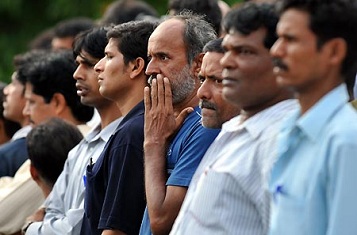
High-risk individuals who can get infected
- Pregnant Women
- Individuals with chronic lung diseases like Bronchial Asthma/Bronchitis
- Individuals with Heart Failure or Hepatic or Renal Failure
- Individuals on immune suppressive treatment
- Diabetic individuals
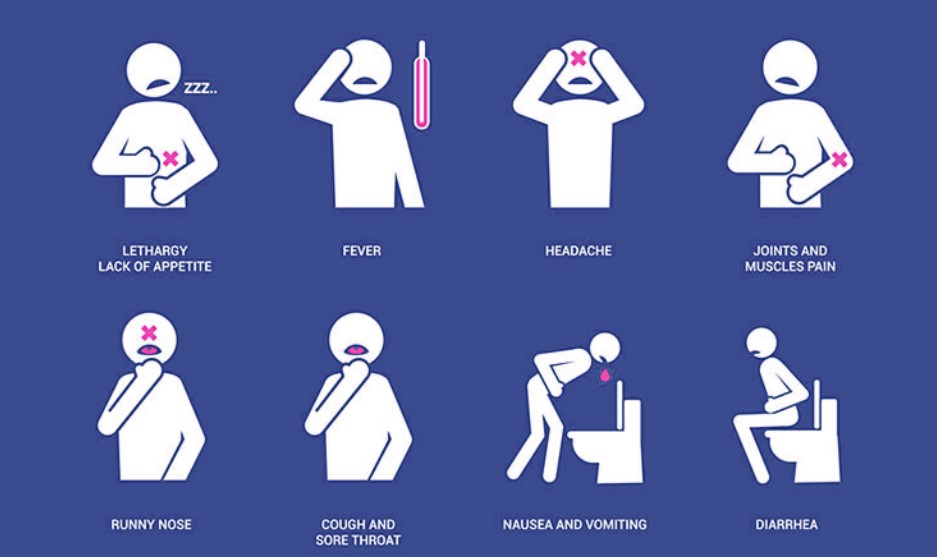
Symptoms to watch for
Body aches, Chills, Cough, Headache, Sore throat, Fever, Tiredness, Vomiting, and Diarrhea
Diagnosis
The diagnosis of Swine-Flu is by RT-PCR test. The test can determine whether the patient is infected with influenza A or B type. If it is positive for type A, the person may have a conventional flu strain or Swine-Flu (H1N1). If the test results are positive for type B, the flu is unlikely to be Swine-Flu (H1N1).

Prevention for Swine Flu
- Prevention in swine by Facility management and Vaccination
- Prevention of transmission and spread to humans.
- Limit your contact with others
- Avoid going to public places if you have any flu like symptoms.
- When coughing or sneezing, use a tissue to cover your mouth. Or, cover your mouth and nose with your hand or crooked arm. Put used tissues in the trash.
- Wash your hands and face regularly.
- Keep all surfaces you come into contact with clean.
- The annual flu vaccine can protect against various types of flu.
- Consult your doctor and test yourself with you have flu like symptoms.
Is there a vaccine for Swine Flu?
Yes, an annual seasonal flu vaccine is the best way to help protect against flu. Vaccination has been shown to have many benefits, including reducing the risk of flu illnesses, hospitalizations, and even the threat of flu related death in children. While some people who get a flu vaccine may still get sick, flu vaccination has been shown in several studies to reduce the severity of illness. IAP believes influenza vaccination should protect vulnerable high risk groups against severe influenza associated disease and death. IAP has not yet recommended introducing the influenza vaccine into UIP for several reasons.
Current recommendations
The flu vaccine is given with the other vaccine as a Pentavalent 1, 2, 3 at 6, 10, and 14 weeks of age as per the National Immunization Schedule. This vaccine covers protection against Diptheria, Tetanus, Pertussis, Hepatitis B, and Influenza.
However, IAP recommends an additional dose at 6 and 7 months with the Influenza 1 & 2 vaccines. The best time in India for annual influenza is April (premonsoon), but it can be given any time of year with the most recent available influenza vaccine.
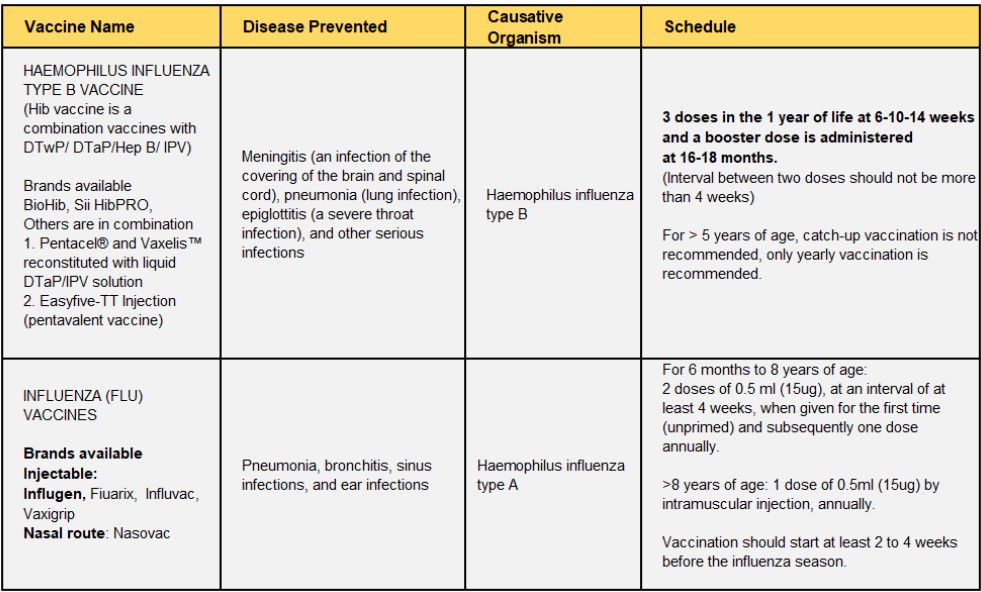
Comparison with COVID
COVID-19 and the flu are both contagious respiratory diseases caused by viruses. The following table illustrates the differences and similarities between both conditions.
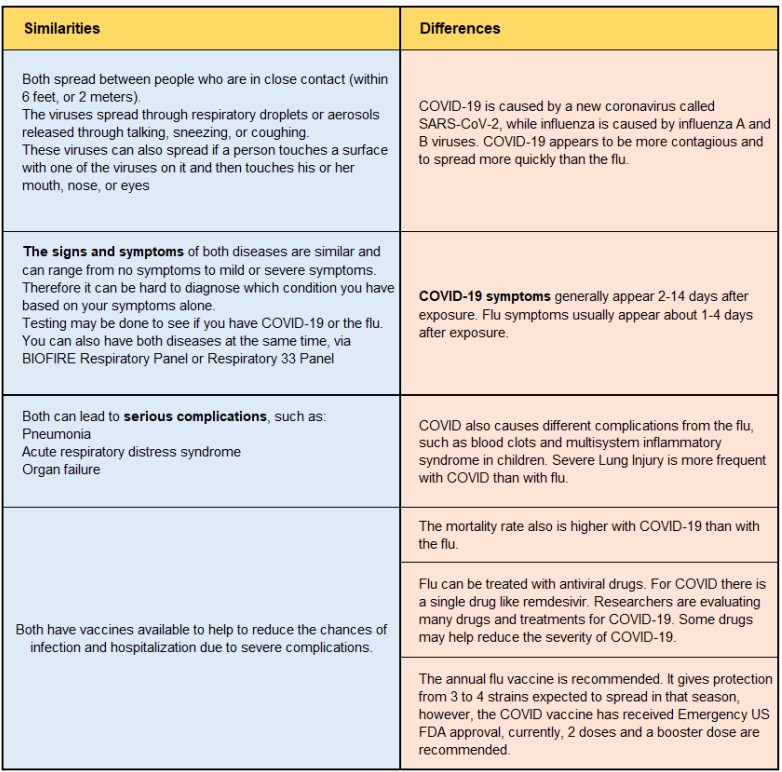
The viruses that cause COVID-19 and the flu may spread in your community simultaneously during the flu season. If this happens, people could simultaneously become ill with one or both diseases. Testing can determine which virus you may have and help guide doctors to the appropriate treatment. People who become seriously sick from either disease may need to stay in the hospital simultaneously, which could cause the hospital to become fully occupied. Getting vaccinated for COVID-19 or the flu can help reduce the spread of the viruses that cause these diseases.
Reference
- https://www.mayoclinic.org/diseases conditions
- https://iapindia.org
- https://www.medindia.net/patientinfo/hib vaccine.htm#google_vignette
For more information on essential testing leave your details in the form below.

